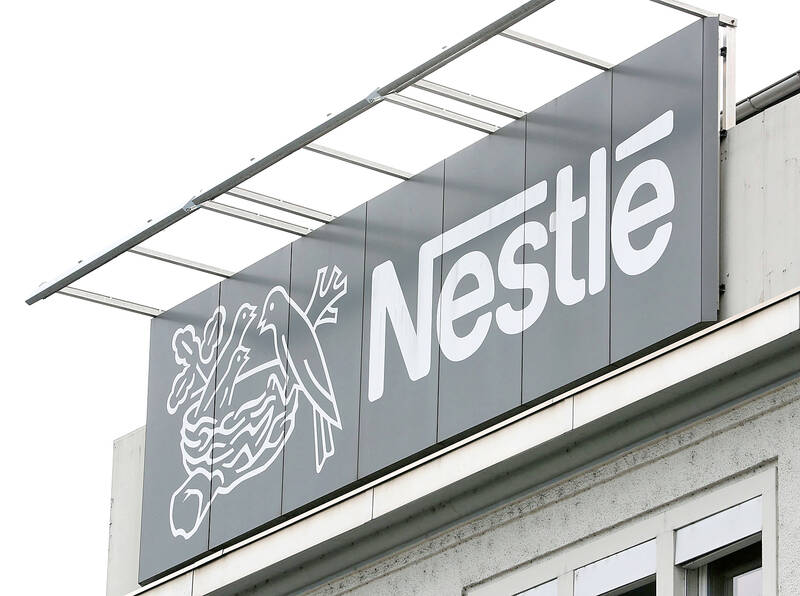Several multinationals doing business in India are on the hook for significant back taxes, interest and potential penalty payments after the Indian Supreme Court overturned a lower court’s interpretation of tax treaty implementation.
The decade-old case affects taxation at the source of dividends, fees for technical services and the like, remitted by Indian subsidiaries of multinationals.
Four companies — Nestle SA, Steria (India) Ltd, Concentrix Services Netherlands BV and Optum Global Solutions International BV — won favorable rulings on the issue in the Delhi High Court, which were challenged by the tax department and overturned by the Supreme Court.

Photo: Reuters
The apex court order issued on Thursday said that lower tax rates in new treaties do not “automatically” apply to treaties with countries that contain clauses on parity — also known as the “most favored nation” clause — separately notified by the Indian government.
The companies were covered by tax treaties between India and the Netherlands, France and Switzerland — all three Organisation for Economic Co-operation and Development members with a similar most favored nation clause in the treaties.
The judgement would directly affect the firms involved and cast a shadow on arrangements involving other companies and other treaties. Lower taxes paid or withheld based on the earlier interpretations might need to be topped up.
There would also be an impact on the viability of certain existing business arrangements.
Multinational companies would face practical issues in recovering tax amounts from recipients, said Dinesh Kanabar, CEO of Dhruva Advisors LLP, a Mumbai-based tax and regulatory consultancy.
The resulting tax demands would revive concerns about the ease of doing business in India at a time when the country is seeking to lure investments away from China.
“This will raise once again the issue of the lack of certainty for MNCs [multinational corporations] operating in India,” tax advocate Rohan Shah said.
Foreign companies followed the law as declared by high courts. As a final decision has taken several years in litigation, the government should offer a “standstill” on taxes for past periods and implement the Supreme Court order prospectively, Shah said. “Absent this, the situation will be chaotic.”
There is a bigger concern. The judgement indicates that the government has the power to notify only some aspects of a treaty.
“Not notifying beneficial clauses or partly notifying or notifying after a length of time effectively amounts to a unilateral treaty override,” Kanabar said.

When an apartment comes up for rent in Germany’s big cities, hundreds of prospective tenants often queue down the street to view it, but the acute shortage of affordable housing is getting scant attention ahead of today’s snap general election. “Housing is one of the main problems for people, but nobody talks about it, nobody takes it seriously,” said Andreas Ibel, president of Build Europe, an association representing housing developers. Migration and the sluggish economy top the list of voters’ concerns, but analysts say housing policy fails to break through as returns on investment take time to register, making the

‘SILVER LINING’: Although the news caused TSMC to fall on the local market, an analyst said that as tariffs are not set to go into effect until April, there is still time for negotiations US President Donald Trump on Tuesday said that he would likely impose tariffs on semiconductor, automobile and pharmaceutical imports of about 25 percent, with an announcement coming as soon as April 2 in a move that would represent a dramatic widening of the US leader’s trade war. “I probably will tell you that on April 2, but it’ll be in the neighborhood of 25 percent,” Trump told reporters at his Mar-a-Lago club when asked about his plan for auto tariffs. Asked about similar levies on pharmaceutical drugs and semiconductors, the president said that “it’ll be 25 percent and higher, and it’ll

NOT TO WORRY: Some people are concerned funds might continue moving out of the country, but the central bank said financial account outflows are not unusual in Taiwan Taiwan’s outbound investments hit a new high last year due to investments made by contract chipmaker Taiwan Semiconductor Manufacturing Co (TSMC, 台積電) and other major manufacturers to boost global expansion, the central bank said on Thursday. The net increase in outbound investments last year reached a record US$21.05 billion, while the net increase in outbound investments by Taiwanese residents reached a record US$31.98 billion, central bank data showed. Chen Fei-wen (陳斐紋), deputy director of the central bank’s Department of Economic Research, said the increase was largely due to TSMC’s efforts to expand production in the US and Japan. Investments by Vanguard International

WARNING SHOT: The US president has threatened to impose 25 percent tariffs on all imported vehicles, and similar or higher duties on pharmaceuticals and semiconductors US President Donald Trump on Wednesday suggested that a trade deal with China was “possible” — a key target in the US leader’s tariffs policy. The US in 2020 had already agreed to “a great trade deal with China” and a new deal was “possible,” Trump said. Trump said he expected Chinese President Xi Jinping (習近平) to visit the US, without giving a timeline for his trip. Trump also said that he was talking to China about TikTok, as the US seeks to broker a sale of the popular app owned by Chinese firm ByteDance Ltd (字節跳動). Trump last week said that he had